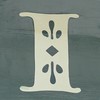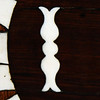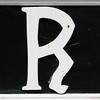I've been watching the news coverage on the bridge collapse in Minnesota. Although they don't know the exact cause yet, and it doesn't sound like it's terrorism, the images of the smoking ruins still remind me of the images that came out on 9/11.
Did you know that 70 members of NYC Fire Department's bagpipe band played at 450 services in the year following 9/11? Wow. Sometimes they would play at a memorial service, and then later, remains would be recovered and they would play again at that same person's funeral service.
Kerry Sheridan followed the band in that year and wrote a book called Bagpipe Brothers that I will have to check out.
A guy in my band recently said that the song that the pipers often played was The Green Hills of Tyrol (aka. The Scottish Soldier) which is one of the first tunes I memorized on the bagpipes. It certainly gives that tune new meaning.
My thoughts and prayers to the families and people affected by the bridge collapse.
Pipe on.
Showing posts with label Funerals. Show all posts
Showing posts with label Funerals. Show all posts
Wednesday
Why Bagpipes at a Funeral?
Yes this funeral is still on my mind. I'm afraid in my last post I missed an obvious question, why are bagpipes so often played at funerals? The most requested tune after all is Amazing Grace, a traditional funeral song, and they really are associated with funerals.
Why bagpipes at a funeral?
Part of the answer might be that they are very mournful sounding.
But the only historical answer I could find relates to when the Irish first came to America. When they came they faced huge discrimination, signs reading NINA (No Irish Need Apply) were posted and it was very difficult for them to get jobs. They were forced to take the jobs that no one else wanted, jobs that were considered dirty and dangerous like police officers and firefighters. These dangerous jobs often resulted in deaths so at their funerals the Irish used their traditions, which included playing the bagpipes.
From there I guess it just spread. Interesting.
Pipe on!
Why bagpipes at a funeral?
Part of the answer might be that they are very mournful sounding.
But the only historical answer I could find relates to when the Irish first came to America. When they came they faced huge discrimination, signs reading NINA (No Irish Need Apply) were posted and it was very difficult for them to get jobs. They were forced to take the jobs that no one else wanted, jobs that were considered dirty and dangerous like police officers and firefighters. These dangerous jobs often resulted in deaths so at their funerals the Irish used their traditions, which included playing the bagpipes.
From there I guess it just spread. Interesting.
Pipe on!
A Piper's Funeral
Today I went to a funeral for someone in my bagpipe band. A couple of the guys from my band played their pipes. This is on my mind today, and when I was sitting at the funeral I was thinking about what kinds of funeral traditions the Scots have. Here's what I found.
From what I read, funerals in Scotland today are similar to funerals in America today. But I did find some interesting 19th century traditions.
At the moment of death the windows were flung open to help the soul out of the house. They were kept open for an instant and then closed so the soul couldn't come back in.
The mirrors were covered so the soul wouldn't be confused and would leave the house.
On the day of the funeral a 7 course meal was hosted by the family of the deceased. The men would feast in the barn and the women in the house. After the feast a ceremony was held to remember the deceased.
Everyone would file past the coffin, touching the deceased's brow to prevent being haunted by the deceased's spirit. The coffin was closed and 8 women would lift it up. The chairs the coffin was resting on would be turned over in case a ghost was sitting in one of them. The coffin left the house feet first so the spirit couldn't find its way home.
From the house, the rest of the funeral procession was on foot and the coffin was carried by men. Apparently sometimes the procession could get a little wild (due the feasting and drinking the night before), sometimes the coffin got lost and other times different processions would get into fights with each other.
On the way to the burial site 'cairns' had been built, these were basically piles of rocks that the funeral could be rested on.
Only men attended the actual burial. (Remember these are 19th century customs!)
Some interesting traditions, it sounds like in general, funerals in 19th century Scotland were filled with a lot of different emotions.
Pipe on!
From what I read, funerals in Scotland today are similar to funerals in America today. But I did find some interesting 19th century traditions.
At the moment of death the windows were flung open to help the soul out of the house. They were kept open for an instant and then closed so the soul couldn't come back in.
The mirrors were covered so the soul wouldn't be confused and would leave the house.
On the day of the funeral a 7 course meal was hosted by the family of the deceased. The men would feast in the barn and the women in the house. After the feast a ceremony was held to remember the deceased.
Everyone would file past the coffin, touching the deceased's brow to prevent being haunted by the deceased's spirit. The coffin was closed and 8 women would lift it up. The chairs the coffin was resting on would be turned over in case a ghost was sitting in one of them. The coffin left the house feet first so the spirit couldn't find its way home.
From the house, the rest of the funeral procession was on foot and the coffin was carried by men. Apparently sometimes the procession could get a little wild (due the feasting and drinking the night before), sometimes the coffin got lost and other times different processions would get into fights with each other.
On the way to the burial site 'cairns' had been built, these were basically piles of rocks that the funeral could be rested on.
Only men attended the actual burial. (Remember these are 19th century customs!)
Some interesting traditions, it sounds like in general, funerals in 19th century Scotland were filled with a lot of different emotions.
Pipe on!
Subscribe to:
Posts (Atom)













